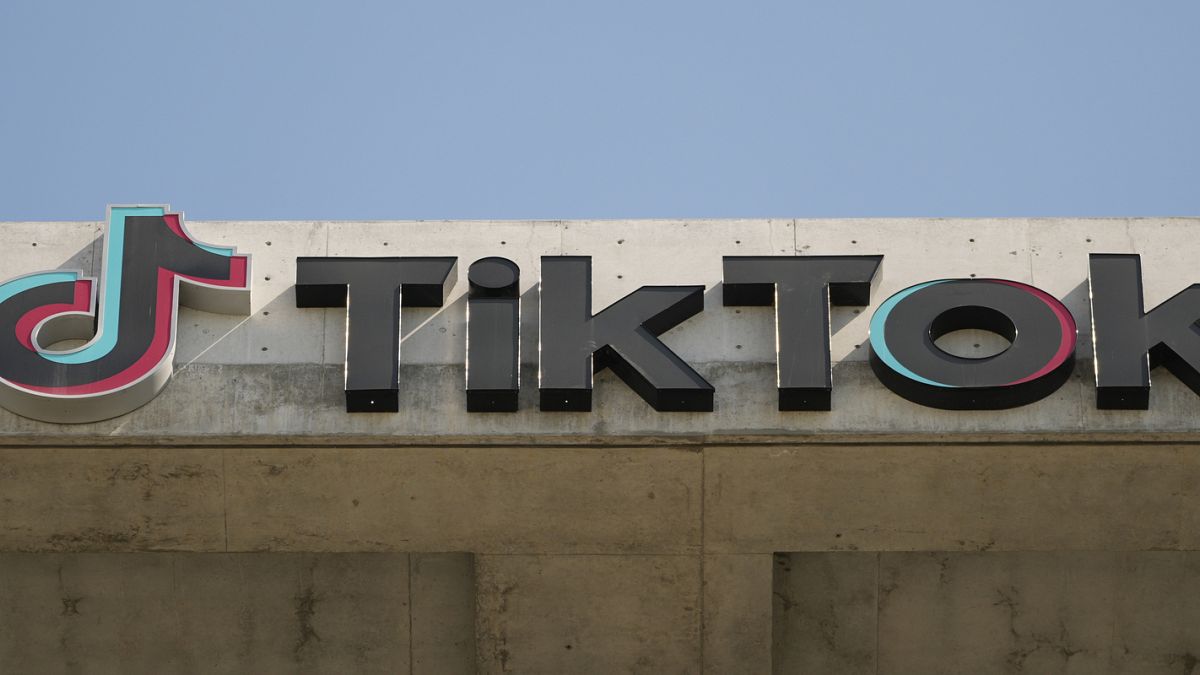The Chinese-owned platform is under increasing scrutiny in Europe for its influence over electoral processes.
TikTok has been accused of spreading election-related disinformation in Ireland, as voters head to the polls to elect a new government on Friday.
The allegations come amid mounting pressure on the Chinese-owned platform, which some EU lawmakers claim played a pivotal role in the surprise victory of little-known ultranationalist Călin Georgescu in the first round of the Romanian presidential elections last Sunday.
International NGO Global Witness conducted an investigation designed to test the platform’s ability to detect and remove false claims about the electoral process in Ireland, and says it found “significant failings.”
The NGO created 14 TikTok videos that included election disinformation and submitted them to the platform to be approved as paid adverts in both English and Irish. Global Witness says the videos used characters and symbols to evade automated moderation, also known as ‘algospeak’.
Of the 14 ads, three were approved to be distributed on the platform in English, and eight approved in Irish.
The approved content included claims that proof of two COVID-19 vaccinations was needed to vote, that postal votes could be cast after the polls closed on election day, and that votes could be cast on Facebook.
Global Witness says that they removed the ads before they could go live on the platform; however, TikTok had already approved them for publication.
Euronews reached out to TikTok for their response to the investigation, and a spokesperson said in a statement: “None of these ads ever appeared on TikTok and the majority were correctly rejected at the first stage of moderation.”
“We will continue to enforce our longstanding position that we do not allow political advertising on TikTok and have launched a dedicated, in-app election centreto provide our users with authoritative information about the elections,” the statement added.
Global Witness says its most recent investigation shows a slight improvement in TikTok’s ability to moderate political content in English, but uncovered serious failings in its ability to detect disinformation in Irish.
TikTok said in a recent report that it employs 1,498 content moderators able to work in English, but none are able to work in Irish.
‘TikTok Taoiseach’
Friday’s snap election comes after more than four years of the historic three-way coalition between Fine Gael, Fianna Fáil and the Green Party.
It’s the first time the two centre-right rivals — Fine Gael and Fianna Fáil — have ever governed together after the Irish republican party Sinn Féin won the popular vote in 2020.
At 38, current Taoiseach Simon Harris of Fine Gael is the youngest to ever lead the country’s government. He has been described as the ‘TikTok Taoiseach’ for his active presence on the platform, where he has garnered over 122,000 followers and 2.5 million likes.
His main rivals in Friday’s vote, Fianna Fáil’s Micheál Martin and Sinn Féin’s Mary Lou McDonald, are also campaigning on the Chinese-owned platform.
But the vote takes place days after the European Commission was asked by the Romanian National Audiovisual Council to formally probe the role of TikTok in the first round of presidential elections, where little-known ultranationalist Calin Georgescu swept to a surprise victory.
TikTok under EU pressure
TikTok is one of several large online platforms that must comply with the most stringent transparency rules under the EU’s digital rulebook, the Digital Services Act (DSA).
The European Commission is already probing the platform over child protection concerns. In April, the platform was pressured into suspending a spinoff reward-to-watch version of its app in France and Spain, in response to pressure from the EU executive.
Although TikTok bans political content in advertising, it is becoming an increasingly essential tool as politicians aim to attract younger voters. A recent report on its use during the Romanian presidential vote found that TikTok was not restricting politicians or political platforms from using its monetisation features, such as paid advertising.
European Commission President Ursula von der Leyen, whose new team was given the seal of approval by lawmakers earlier this week, refused to rule out the potential of an EU ban on TikTok during an electoral debate earlier this year.
Asked whether she could consider outlawing the platform, von der Leyen said: “It is not excluded.”
“We know exactly the danger of TikTok,” she added.
Read the full article here
